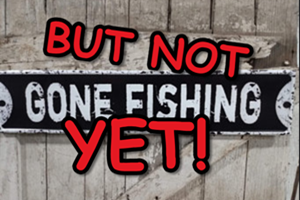 I have experienced ageism and blew through it — several times. Pretty much solidly employed all my life, I usually changed jobs by my own choice.
I have experienced ageism and blew through it — several times. Pretty much solidly employed all my life, I usually changed jobs by my own choice.
A short history of my careers
I was not terminated until 56 years old. I found a job a few months later, lost that, and then found another relocating from North Carolina to Texas. Then the terminations became relatively frequent.
I was laid off at age 63 and spent many months job hunting, taking a part time job in retail at 64 while still looking. At this point, I changed direction and decided to try recruiting. I networked into a new job and career path at 65. I was terminated at age 66. The next day I started a new recruiting job and was terminated three years later. This time I aimed for a part-time recruiting job, and quickly networked into one at 69 and worked until age 76 when I left on my own.
I would still be there if I’d not moved.
Lessons about ageism
There are some lessons about dealing with ageism I’d like to share based on my experience.
Most important, through all I’ve described, I got all my jobs but one via networking and personal contacts. The only successful job application I ever filled out was for the part-time retail job at 64. That was just to keep busy while I job hunted!
1. The personal-contact method is the best and most manageable way to go.
And for now, in this economy, it is the way to go. Any time spent acquiring, restoring, helping and growing your personal contacts is time not wasted.
Remember, when you get an interview, not only do you have a job opportunity, you have a networking opportunity. And that applies to both sides of the table.
2. Damn right, there’s ageism.
The best way to deal with ageism (or age discrimination in hiring) is to ignore it and work your plan the way you feel you need to, and do it via personal contacts. Personal contacts cut to the chase. They know you’re long in the tooth, so the people they refer you to know as well! If the employer doesn’t want older workers, your contacts wouldn’t refer you. So in essence, your contacts are running interference for you, vetting their contacts.
Learn from that. It means that if you are job hunting on your own, without contacts, you must add one key thing to your search criteria. You must limit yourself to employers who don’t give a shit about your age and, even better, those that actually value it and recognize your age is firmly bolted to experience they value.
How do you do that? Adjust your mindset. You are interviewing them with an aim to finding out their attitude about age. If you don’t like what you see and hear, move on.
3. If you want social justice and to eliminate ageism, bless you.
That’s time consuming, expensive and gets strongly in the way of the main objective, getting meaningfully employed. Taking your time to battle ageism fits perfectly into one of my favorite mantras: “Never try to teach a pig to sing. It wastes your time and annoys the pig.”
A really good way to combat ageism is to find your niche and, from there, help others land. In your new job, you can be a walking example that ignoring age is good business. You can ease the way for other “oldies.” Yes, I did this, as a recruiter for a company.
I think the best way to fight ageism is from the inside. Think about this the next time your employer asks you to interview a job applicant — and they’re an oldie.
4. Ageism swings both ways.
Keep this in mind: Ageism is a door that swings both ways. Be prepared to work for younger managers, possibly much younger.
Treat them as you want to be treated. Treat them as your boss. Look at them eye to eye, not down your nose. Park your ego.
If it works out right, your young boss will be perfectly aware you know more than they do. That’s why they hired you! I started working for younger people when I was 39 and it changed little after that.
5. Re-tool.
When I was laid off at age 63 from the computer industry, I did some thinking. High-tech is addicted to youth. I doubted my chances of re-landing in it. It would take intense effort and leaning hard into ageism. I worked 50+ years in software engineering and had ample personal contacts, but I knew this would be a grind.
The truth is, I’d had my fill. I took Social Security at 62. But I didn’t want to retire retire. So I decided to re-tool myself.
Rather than try the same-old thing again, I turned myself into a recruiter. That worked. Again, I did it with the help of personal contacts. This change in direction brought much into focus.
6. Focus.
Once focused on my new objective — to become a recruiter — not only did I make better use of my time, but I could help my contacts to better help me.
Despite much grumbling about recruiters, just about everyone knows a few recruiters. Talking with them got me in the door. The pace of my transition picked up. Was this easy? No, but it was doable.
In my case, I’m a 10th degree black-belt introvert. In a million years I’d never see myself doing this. But I did it. I’m not saying be a recruiter. I’m saying you can move out of a rigid habitual comfort zone. Focus on where you want to go next. If I can, you can.
7. Leverage your age. Pursue smaller companies that value expertise.
I not only changed my primary vocation, but eventually I changed industries. And size of employers, from mega-corporations to small and medium sized businesses. The last one was privately owned.
Both as a job hunter and a recruiter I can tell you that, if you are an older worker, give serious thought to focusing on small businesses. In a huge corporation you’re a statistic. In a small company you are a person, known by name.
And to quote the man who hired me, “I can’t understand the concept of ‘overqualified.’ Why would I turn aside someone with a lot of experience to offer?”
He did not give a hoot about anyone’s age.
If you go this route, you can turn age into an advantage. If, like me, you took Social Security early, you’ll find it not only frees you from chasing benefits, it will free a small business that hires you from messing up its health insurance costs. Believe me, for a small company the words “I don’t need your insurance” can be music to their ears — and for you, it’s a bargaining chip younger people can’t play.
8. Decide what you need.
I understand if you need a paycheck of a certain size. If that’s the case, this is a different discussion because it’s not specifically a problem of age. If you need money, my advice may not be for you.
But if you have some financial flexibility and what you need is to get back into the game, then do your financial homework. Know the difference between what’s nice to have and what’s necessary.
In my case, the “content” of my job has been more important than money. High on my list is an environment where I can work while being “retired” from B.S., stress and company politics.
I was pleasantly surprised at how shoving money and benefits out of the way empowered my job search and strategy. I hope you experience the same thing. I believe life is a trade-off. For everything you give up, you get something in return. Yeah, you may give up some pay, but you’ll get something in its place. If you decide what that is and what it’s worth to you, you may be able to find your way past ageism so you can work as long as you want to.
[UPDATE Feb. 18, 2021]
9. Get in shape
“Get in shape” physically, mentally, spiritually, emotionally — but particularly physically. Get off your ass and get your mojo going. That really applies to all job hunters, but more so for oldsters! And don’t be surprised if you are talking with interviewers and hiring managers who need to do likewise.
There’s a lot of things in job hunting out of your control, which is why it can be so discouraging and energy draining. But getting and keeping in shape for the hunt is completely under your control and as such offers a sense of accomplishment. And that sense of accomplishment will greatly fuel your search.
If I can do it, so can you.
Sorry for pontificating. The gist of it is, age is an issue if you make it an issue. Stop chasing jobs, and start pursuing companies. Look for ones that equate experience with age. It won’t help you to apply — along with hordes of competitors — to job postings that will use a computer algorithm to select or reject you based on your “keywords.”
People who know you can help you. I’m now 81. Hold that thought. At 76 I was still working because I chose to work, and because I worked with employers that wanted the value of my expertise and age. If I can do it, so can you. Persist.
One more thing. At times I’m bored, drawn to using my business brain again, with urges to set up another part-time gig. My age never enters my mind as a reason not to. I still enjoy the fun thought of contacting someone and saying, “Hi Joe or Joanne, I’m 81 and…”
Don Harkness has been an active participant on the Ask The Headhunter discussion forum since 2004.
Don is a seemingly retired 81-year old warrior from a number of trades. A job hunter, hiring manager and recruiter, both domestically and Internationally, Don can relate to about any career situation you can name.
He worked 35 years for three Fortune 500 computer companies in the bowels of software R&D, mostly on the dark side as a Software Quality Assurance Manager. He lightened that up with tours as Program/Project Manager, Software Development Director, and sundry supporting functions in the computer industry. Don put frosting on that cake with 10+ years in I.T. recruiting. In addition to the school of life, he spent 4 years in the University of Science Math and Culture (U.S.M.C.) and holds an A.A. in Accounting and a B.A. in Business Administration. Don got off the merry-go-round and stopped working when he decided to, at age 76.
Copyright © Don Harkness 2020.
: :
 We’ve become accustomed to our ageing population being presented as a bad thing. Dangerous rhetoric painting older people as disposable has become far too common, particularly since the start of the COVID-19 pandemic. The impact of ageing is portrayed as being overwhelmingly negative for our economy and society. Policy makers are so fixated on the direct costs of ageing that they fail to notice the significant and growing contributions that older people make.
We’ve become accustomed to our ageing population being presented as a bad thing. Dangerous rhetoric painting older people as disposable has become far too common, particularly since the start of the COVID-19 pandemic. The impact of ageing is portrayed as being overwhelmingly negative for our economy and society. Policy makers are so fixated on the direct costs of ageing that they fail to notice the significant and growing contributions that older people make.



 I have experienced ageism and blew through it — several times. Pretty much solidly employed all my life, I usually changed jobs by my own choice.
I have experienced ageism and blew through it — several times. Pretty much solidly employed all my life, I usually changed jobs by my own choice.
 I hate cover letters. I don’t know how to write a decent one, all the online help I’ve seen is banal garbage, and frankly I’d rather chew on broken glass than go through the agony of trying to think up a bunch of “toot-your-own-horn” baloney to spit out in a cover letter. But in the process of applying for jobs, oftentimes a cover letter is required. Any suggestions?
I hate cover letters. I don’t know how to write a decent one, all the online help I’ve seen is banal garbage, and frankly I’d rather chew on broken glass than go through the agony of trying to think up a bunch of “toot-your-own-horn” baloney to spit out in a cover letter. But in the process of applying for jobs, oftentimes a cover letter is required. Any suggestions?
 Twice in the last month or so I’ve gotten LinkedIn mail from recruiters who were really excited about my background and wanted to talk to me about a position that would be right up my alley. I’d reply offering a date and time to talk. Both times I was ghosted. LinkedIn’s utility for job search continues to take a nosedive. “There oughta be a law!” How can I judge what’s real and what’s spam?
Twice in the last month or so I’ve gotten LinkedIn mail from recruiters who were really excited about my background and wanted to talk to me about a position that would be right up my alley. I’d reply offering a date and time to talk. Both times I was ghosted. LinkedIn’s utility for job search continues to take a nosedive. “There oughta be a law!” How can I judge what’s real and what’s spam?
 I’m thinking of making a significant shift that would lead to better pay and an overall more satisfying career in a different kind of job. To make the change I might be able to get away with some certification programs and continuing education. However, I’m also considering getting a master’s degree because that seems to be an important credential for “getting in.” Any approach I take will cost money and time, in some cases a lot of both! How do I decide which way to go?
I’m thinking of making a significant shift that would lead to better pay and an overall more satisfying career in a different kind of job. To make the change I might be able to get away with some certification programs and continuing education. However, I’m also considering getting a master’s degree because that seems to be an important credential for “getting in.” Any approach I take will cost money and time, in some cases a lot of both! How do I decide which way to go?